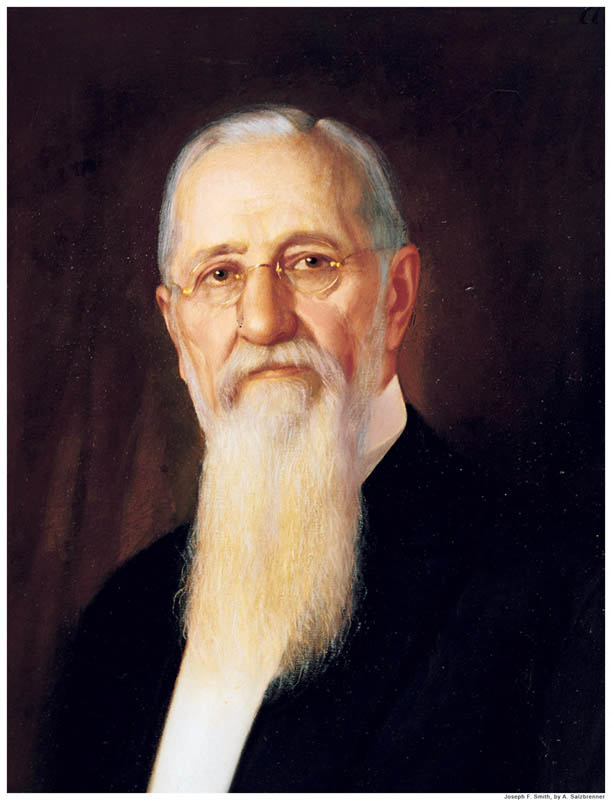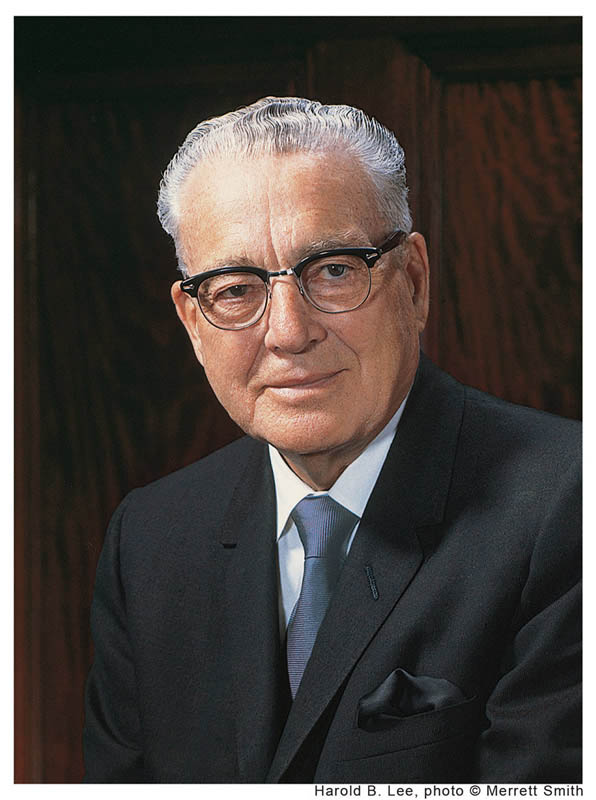“It’s not what happens to you that matters most, but how you respond to what happens that determines the difference between a bitter life . . . or a better life. Depth of character is tested at the edge of adversity; the way you respond to trials and troubles reveals the core of your character; and in every adversity, there is opportunity” (Changing Your Stripes, p. 14).
Through the redeeming miracle of Christ’s atonement, Joseph F. Smith found divine opportunity through his many adversities.
 Days before Mary Fielding Smith was due to deliver her first child, her husband Hyrum and his brother Joseph were falsely imprisoned in the Liberty Jail. Thus, Mary gave birth to her son, Joseph F., without the supportive presence of her husband–a foreshadowing of future days to be endured alone. The imprisonment of Hyrum Smith and the prophet Joseph happened in conjunction with the infamous “extermination order” declared by Missouri Governor, Lilburn Boggs–an order to exterminate Mormons from Missouri that remained on “the books” for 137 years, and then rescinded in 1976.
Days before Mary Fielding Smith was due to deliver her first child, her husband Hyrum and his brother Joseph were falsely imprisoned in the Liberty Jail. Thus, Mary gave birth to her son, Joseph F., without the supportive presence of her husband–a foreshadowing of future days to be endured alone. The imprisonment of Hyrum Smith and the prophet Joseph happened in conjunction with the infamous “extermination order” declared by Missouri Governor, Lilburn Boggs–an order to exterminate Mormons from Missouri that remained on “the books” for 137 years, and then rescinded in 1976.It was near the end of the Smith brother’s four month incarceration in Liberty jail that the prophet Joseph, in answer to his prayers, received the following words of perspective and purpose:
“know thou my son, that all these things shall give thee experience, and shall be for thy good. The Son of Man hath descended below them all. Art thou greater than he?” (D&C 122: 7, 8).
Joseph F. Smith was born into a life circumstance destined for affliction. An omniscient God could clearly foresee the trials that would arise at an early age; thus, Joseph F. was undoubtedly “called to pass through tribulation” (D&C 122: 5). He was a babe in arms, when his family was driven out of Missouri by an anti-Mormon mob, stirred up even more by Governor Boggs’ extermination order.
Five years later, his father Hyrum would be imprisoned again on false charges, this time in a jail at Carthage, Illinois. The inspired words written by his uncle, the prophet Joseph, became directly personal to this tender child: “if they tear thee from the society of thy father” (D&C 122: 6; please read the entire verse).
Joseph F. was in his 6th year of life when his father was murdered by an angry mob that stormed the Carthage Jail. Hyrum Smith was killed instantly as a “ball” passed through the wooden jail door, striking him in the head–this, as Hyrum forcefully pushed against the door trying to keep the malicious mob from entering. Hyrum’s brother Joseph was also shot as he tried to leap from the second story jail window. “They were both shot after they were dead, in a brutal manner, and both received four balls” (D&C 135: 1)
As he grew to manhood, imagine the psychological association that young Joseph F. might have had at the sight of a gun? Especially one that would be eventually pointed directly at him, in a moment that would test the depth of his character.
After the death of his father, the young boy began a journey from Nauvoo, Illinois to Salt Lake Valley. It was a trek that took almost two years to complete. At just 7 years of age, Joseph F. supported his mother’s decision to go west with the saints, by driving an ox team across the plains.
During this difficult pioneer trek, the ox team “laid down in the yoke as if poisoned.” At this critical moment, Mary Fielding Smith taught her son about the power of prayer and about faith in Jesus Christ. With a brightness of hope, Mary prayed that the ox team might be healed; “to the astonishment of all” the oxen “got up and we drove along.”
Joseph F. was 13 years of age when his mother Mary died of pneumonia. His aunt Mercy, also a widow, continued to nurture him.
While a lesser man might have curled up into a protective ball and avoided further tribulations in life, at age 15, Joseph F. Smith accepted the call to serve; he began the first of five proselytizing missions for the Church. His first mission field was in the “Sandwich Islands” (later known as Hawaii when these islands became U.S. territories). His Hawaiian mission lasted four years.
Joseph F. Smith lived a life that was solely and wholly dedicated to doing the will of the Father. Because God is no respecter of persons, anyone who is faithful to the Father will receive His promise of protection:
“Therefore hold on thy way, . . . Thy days are known, and thy years shall not be numbered less; therefore, fear not what man can do, for God shall be with you forever and ever” (D&C 122: 9).
In 1857, at the age of 19, Joseph F. was returning from the Sandwich Islands by way of the “Southern Route” from Los Angeles to Utah. The wagon train with which Joseph F. was traveling made camp, when some “toughs rode into the camp on horseback, cursing and swearing and threatening what they would do to the Mormons.” What happened then, is recorded as follows:
Joseph F. was a little distance from the camp gathering wood for the fire, but he saw that the few members of his own party had cautiously gone in the brush down the creek, out of sight. When he saw that, . . . the thought came into his mind, “Shall I run from these fellows? Why should I fear them?” With that he marched up with his arm full of wood, to the campfire where one of the ruffians, still with his pistol in his hand, shouting and cursing about the Mormons, in a low voice said to Joseph F.,
“Are you a Mormon?” And the answer came straight,
“yes, siree; dyed in the wool; true blue, through and through.”
At that the ruffian grasped him by the hand and said: “Well, you are the [blankety-blank] pleasantest man I ever met! Shake young fellow, I am glad to see a man that stands up for his convictions” (Teachings of the Presidents of the Church, Joseph F. Smith; p. 104).
Knowing that his father died at the end of a pointed pistol could have caused overwhelming fear to come over young Joseph F., but the promises of God are greater than any fear generated by malicious men; Christ’s redeeming miracle is greater than all fear born of psychological associations to childhood trauma.
Indeed, Joseph F. was a “pleasant fellow.” He was a young man filled with the love of God and filled with faith to honor his holy calling–this was the primal Source that pushed aside all his fears!
“For God hath not given us the spirit of fear; but of power, and of love, and of a sound mind. Be not thou therefore ashamed of the testimony of our Lord, . . . but be thou partaker of the afflictions of the gospel according to the power of God; Who hath saved us, and called us with an holy calling” (2 Tim. 1: 7-9); “he that dwelleth in love dwelleth in God, and God in him. Herein is our love made perfect, that we may have boldness in the day of judgment: . . . There is no fear in love; but perfect love casteth out fear: because fear hath torment. He that feareth is not made perfect in love” (1 John 4: 16-18).
“In this life, it is not what happens to you that matters most, but how you respond to what happens that determines the difference between a bitter life . . . or a better life. Depth of character is tested at the edge of adversity; the way you respond to trials and troubles reveals the core of your character; and in every adversity, there is opportunity.”
In the afflictions through which the Lord “calls” us to pass, there is a possibility of divine redemption and renewal–turning every adversity into “good” (Gen. 50: 20) and “gain.”
“And behold, in thy childhood thou hast suffered afflictions and much sorrow, because of the rudeness of thy brethren. Nevertheless, . . . thou knowest the greatness of God; and he shall consecrate thine afflictions for thy gain” (2 Nephi 2: 1-2).




